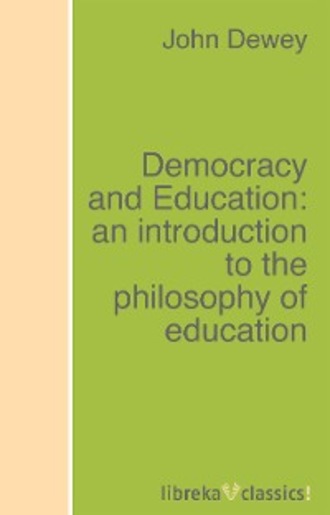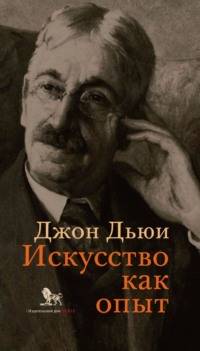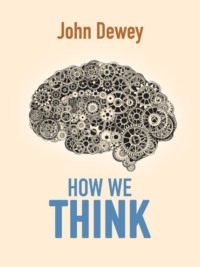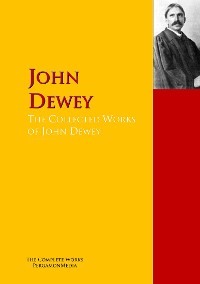
Полная версия
Democracy and Education: an introduction to the philosophy of education

DEMOCRACY AND EDUCATION
by John Dewey
Titel: Democracy and Education: an introduction to the philosophy of education von Scott Hemphill, L. M. Montgomery, L. Frank Baum, John Milton, René Descartes, Baroness Emmuska Orczy Orczy, Karl Marx, Friedrich Engels, Edgar Rice Burroughs, Unknown, Norman F. Joly, Norman Coombs, David Slowinski, Mark Twain, Henry David Thoreau, Stephen Crane, John Goodwin, Nathaniel Hawthorne, Winn Schwartau, Odd De Presno, Sir Walter Scott, Jules Verne, Mary Wollstonecraft Shelley, United States. Central Intelligence Agency, United States, Canada, Willa Sibert Cather, Anthony Hope, Edwin Abbott Abbott, Charles Dickens, Frederick Douglass, William Shakespeare, Bruce Sterling, Franklin Delano Roosevelt, Jane Austen, Thomas Hardy, Sir Arthur Conan Doyle, Edna St. Vincent Millay, Gene Stratton-Porter, Richard McGowan, Frances Hodgson Burnett, United States. Bureau of the Census, Electronic Frontier Foundation, Robert Louis Stevenson, Anonymous, Jerry Bonnell, Robert Nemiroff, Andrew Lang, G. K. Chesterton, John Bunyan, Sunzi 6th cent. B.C., Harold Frederic, Mary Wollstonecraft, Victor Hugo, René Doumic, Upton Sinclair, Virginia Woolf, George Eliot, Thomas Paine, Benjamin Franklin, Plato, Samuel Taylor Coleridge, Ruth M. Sprague, William Dean Howells, Wilkie Collins, Jean Webster, H. G. Wells, Kate Chopin, Mark Eliot Laxer, Louisa May Alcott, Frank Norris, Edith Wharton, S. D. Humphrey, Henry Hunt Snelling, William Morris, Mrs. Susanna Rowson, Christopher Morley, Sax Rohmer, Oscar Wilde, Gaston Leroux, Henry James, Project Gutenberg, Harriet Beecher Stowe, Various, Robert W. Service, A. B. Paterson, Henry Lawson, Jack London, Laozi, D. H. Lawrence, Julius Caesar, Joseph Conrad, W. Somerset Maugham, George MacDonald, Marcus Tullius Cicero, Virgil, Theodore Dreiser, Giuseppe Salza, Rudyard Kipling, ca. 50 BCE-16 BCE Sextus Propertius, Robert A. Harris, William Wells Brown, graf Leo Tolstoy, Omar Khayyám, Michael Hart, Library of Congress. Copyright Office, Coalition for Networked Information, Geoffrey Chaucer, Adam Lindsay Gordon, Hiram Corson, Robert Browning, Amy Lowell, Rupert Brooke, Joyce Kilmer, John Gower, Saki, Kenneth Grahame, Anna Sewell, Martin Luther, Philipp Melanchthon, National Atomic Museum, Alexander William Kinglake, Charles John Cutcliffe Wright Hyne, Amelia Edith Huddleston Barr, James Branch Cabell, Bayard Taylor, Horatio Alger, Booth Tarkington, Hjalmar Hjorth Boyesen, Michael Husted, Émile Gaboriau, Jerome K. Jerome, Stephen Vincent Benét, Edwin Arlington Robinson, J. Frank Dobie, Joseph Rodman Drake, Eliot Gregory, John Fox, John Muir, Richard Harding Davis, Edgar A. Guest, Mary Roberts Rinehart, Thomas Nelson Page, Sir Walter Alexander Raleigh, Rebecca Harding Davis, Charles Alexander Eastman, Zitkala-Sa, Marie L. McLaughlin, J. M. Barrie, Bram Stoker, Hesiod, Edna Ferber, John McCrae, Anna Howard Shaw, Elizabeth Garver Jordan, Frances Jenkins Olcott, P.-J. Proudhon, Eleanor H. Porter, Mary Hunter Austin, Sarah Orne Jewett, Russell Herman Conwell, Daniel Defoe, Henry Benjamin Wheatley, Ambrose Bierce, Nettie Garmer Barker, Martí Joan de Galba, Joanot Martorell, Oliver Goldsmith, Zane Grey, Winston Churchill, Arthur Machen, L. Cranmer-Byng, Torquato Tasso, H. De Vere Stacpoole, Elizabeth Cleghorn Gaskell, Frank Richard Stockton, Rutherford Hayes Platt, Sara Teasdale, Samuel Smiles, W. E. B. Du Bois, Phillis Wheatley, Elbert Hubbard, Richard Jefferies, George Henry Borrow, Sherwood Anderson, Vachel Lindsay, David Graham Phillips, Harry Houdini, Eugene Field, Gustave Le Bon, Henry Brodribb Irving, William Healy, Mary Tenney Healy, Charles Godfrey Leland, Ralph Parlette, Don Marquis, Richard Le Gallienne, Stewart Edward White, Andrew Steinmetz, Madame de La Fayette, Abbé Prévost, Honoré de Balzac, Charles W. Chesnutt, Sara Cone Bryant, William Booth, James Nasmyth, Enrico Ferri, Joe Hutsko, Miriam Michelson, Oliver Optic, Victor MacClure, Calamity Jane, Gertrude Franklin Horn Atherton, Dinah Maria Mulock Craik, Henry J. Coke, Kate Douglas Smith Wiggin, Victor [pseud.] Appleton, Carlo Collodi, Hugh Lofting, John Philip Sousa, Andrew Dickson White, Joseph Sheridan Le Fanu, Isaac Taylor Headland, Amy Steedman, B. M. Bower, William Tuckwell, Clarence Edgar Johnson, Sinclair Lewis, Rex Stout, Carl R. Maag, Steve Rohrer, Mariano Azuela, Royall Tyler, John Buchan, Ross Kay, J. L. Kennon, Eros Urides, Friedrich Schiller, William Cowper Brann, Adelaide L. Fries, Beatrix Potter, Mary Lamb, Charles Lamb, William Blake, Francis Bacon, Samuel Johnson, Tadashi Nakashima, Sidney Lanier, Edward Jenkins, Harriet E. Wilson, Ellen Craft, William Craft, Sir Thomas Browne, Alexander H. Japp, Guy de Maupassant, Thomas Bailey Aldrich, Snorri Sturluson, William Makepeace Thackeray, Fyodor Dostoyevsky, M. G. Lewis, Lucan, Edwin Lester Linden Arnold, Frank Bird Linderman, Tingfang Wu, Baron Alfred Tennyson Tennyson, Japan, Lodovico Ariosto, Alan Seeger, Anthony Trollope, Lewis Carroll, William James, Jonathan Swift, Edward Bellamy, Richard de Bury, Charles Mackay, Eliza Burt Gamble, R. M. Ballantyne, Fanny Van de Grift Stevenson, Mrs. Sutherland Orr, William Sharp, 4th century Smyrnaeus Quintus, Noah Webster, Russ Walter, Plutarch, Charles Kingsley, Frances Ellen Watkins Harper, Sarojini Naidu, Maksim Gorky, Greg Fee, Izaak Walton, U.S. Arms Control and Disarmament Agency, United States. Army. Corps of Engineers. Manhattan District, European Union, Alice Moore Dunbar-Nelson, Bertrand Russell, James Whitcomb Riley, S. Weir Mitchell, Horace Walpole, John Ruskin, Martha Young, Richard Lovelace, Henry Van Dyke, Michael Fairless, E. W. Hornung, Henry Rider Haggard, Edward Sylvester Ellis, Laura Lee Hope, Lafcadio Hearn, William Ernest Henley, John Clark Ridpath, G. Mercer Adam, Charles Keyser Edmunds, John A. Carpenter, Steven Levy, Edward Gibbon, Henry Clay, John C. Calhoun, Thomas Hart Benton, Arthur Brisbane, William Godwin, Walter L. Pyle, George M. Gould, Dornford Yates, Saint John of Damascus, Oliver Wendell Holmes, Hendrik Willem Van Loon, Isabella L. Bird, J. A. Munk, Sir W. S. Gilbert, Sir Max Beerbohm, George Whale, Edmund Day, Marion Mills Miller, John Murray, Mary Mapes Dodge, Abraham Merritt, Anne Brontë, Emily Brontë, Kakuzo Okakura, E. Nesbit, Charlotte Brontë, William J. Claxton, Christopher Marlowe, Sir John Mandeville, Jos. E. Badger, Titus Lucretius Carus, Charles Brockden Brown, Frederick Arthur Ambrose Talbot, Stendhal, Laurence Sterne, F. Scott Fitzgerald, Sophocles, Sir Arthur Sullivan, Graf Ilia Lvovich Tolstoi, Alexis de Tocqueville, H. Barber, Herbert Newton Casson, Frank Lewis Dyer, Thomas Commerford Martin, Frank Tymon, ca. 3rd cent. B.C. Apollonius Rhodius, 12th cent. de Troyes Chrétien, J. Walker McSpadden, Thorstein Veblen, R. D. Blackmore, William Gilmore Simms, Henry Timrod, M. L. Weems, Baron Thomas Babington Macaulay Macaulay, Francis Hopkinson Smith, Mary White Rowlandson, John Dewey
ISBN 978-3-7429-0801-8
Alle Rechte vorbehalten.
Es ist ohne vorherige schriftliche Erlaubnis nicht gestattet, dieses Werk im Ganzen oder in Teilen zu vervielfältigen oder zu veröffentlichen.
Transcriber's Note:
I have tried to make this the most accurate text possible but I am sure that there are still mistakes.
I would like to dedicate this etext to my mother who was a elementary school teacher for more years than I can remember. Thanks.
David ReedChapter One: Education as a Necessity of Life
1. Renewal of Life by Transmission. The most notable distinction between living and inanimate things is that the former maintain themselves by renewal. A stone when struck resists. If its resistance is greater than the force of the blow struck, it remains outwardly unchanged. Otherwise, it is shattered into smaller bits. Never does the stone attempt to react in such a way that it may maintain itself against the blow, much less so as to render the blow a contributing factor to its own continued action. While the living thing may easily be crushed by superior force, it none the less tries to turn the energies which act upon it into means of its own further existence. If it cannot do so, it does not just split into smaller pieces (at least in the higher forms of life), but loses its identity as a living thing.
As long as it endures, it struggles to use surrounding energies in its own behalf. It uses light, air, moisture, and the material of soil. To say that it uses them is to say that it turns them into means of its own conservation. As long as it is growing, the energy it expends in thus turning the environment to account is more than compensated for by the return it gets: it grows. Understanding the word "control" in this sense, it may be said that a living being is one that subjugates and controls for its own continued activity the energies that would otherwise use it up. Life is a self-renewing process through action upon the environment.
In all the higher forms this process cannot be kept up indefinitely. After a while they succumb; they die. The creature is not equal to the task of indefinite self-renewal. But continuity of the life process is not dependent upon the prolongation of the existence of any one individual. Reproduction of other forms of life goes on in continuous sequence. And though, as the geological record shows, not merely individuals but also species die out, the life process continues in increasingly complex forms. As some species die out, forms better adapted to utilize the obstacles against which they struggled in vain come into being. Continuity of life means continual readaptation of the environment to the needs of living organisms.
We have been speaking of life in its lowest terms – as a physical thing. But we use the word "Life" to denote the whole range of experience, individual and racial. When we see a book called the Life of Lincoln we do not expect to find within its covers a treatise on physiology. We look for an account of social antecedents; a description of early surroundings, of the conditions and occupation of the family; of the chief episodes in the development of character; of signal struggles and achievements; of the individual's hopes, tastes, joys and sufferings. In precisely similar fashion we speak of the life of a savage tribe, of the Athenian people, of the American nation. "Life" covers customs, institutions, beliefs, victories and defeats, recreations and occupations.
We employ the word "experience" in the same pregnant sense. And to it, as well as to life in the bare physiological sense, the principle of continuity through renewal applies. With the renewal of physical existence goes, in the case of human beings, the recreation of beliefs, ideals, hopes, happiness, misery, and practices. The continuity of any experience, through renewing of the social group, is a literal fact. Education, in its broadest sense, is the means of this social continuity of life. Every one of the constituent elements of a social group, in a modern city as in a savage tribe, is born immature, helpless, without language, beliefs, ideas, or social standards. Each individual, each unit who is the carrier of the life-experience of his group, in time passes away. Yet the life of the group goes on.
The primary ineluctable facts of the birth and death of each one of the constituent members in a social group determine the necessity of education. On one hand, there is the contrast between the immaturity of the new-born members of the group – its future sole representatives – and the maturity of the adult members who possess the knowledge and customs of the group. On the other hand, there is the necessity that these immature members be not merely physically preserved in adequate numbers, but that they be initiated into the interests, purposes, information, skill, and practices of the mature members: otherwise the group will cease its characteristic life. Even in a savage tribe, the achievements of adults are far beyond what the immature members would be capable of if left to themselves. With the growth of civilization, the gap between the original capacities of the immature and the standards and customs of the elders increases. Mere physical growing up, mere mastery of the bare necessities of subsistence will not suffice to reproduce the life of the group. Deliberate effort and the taking of thoughtful pains are required. Beings who are born not only unaware of, but quite indifferent to, the aims and habits of the social group have to be rendered cognizant of them and actively interested. Education, and education alone, spans the gap.
Society exists through a process of transmission quite as much as biological life. This transmission occurs by means of communication of habits of doing, thinking, and feeling from the older to the younger. Without this communication of ideals, hopes, expectations, standards, opinions, from those members of society who are passing out of the group life to those who are coming into it, social life could not survive. If the members who compose a society lived on continuously, they might educate the new-born members, but it would be a task directed by personal interest rather than social need. Now it is a work of necessity.
If a plague carried off the members of a society all at once, it is obvious that the group would be permanently done for. Yet the death of each of its constituent members is as certain as if an epidemic took them all at once. But the graded difference in age, the fact that some are born as some die, makes possible through transmission of ideas and practices the constant reweaving of the social fabric. Yet this renewal is not automatic. Unless pains are taken to see that genuine and thorough transmission takes place, the most civilized group will relapse into barbarism and then into savagery. In fact, the human young are so immature that if they were left to themselves without the guidance and succor of others, they could not acquire the rudimentary abilities necessary for physical existence. The young of human beings compare so poorly in original efficiency with the young of many of the lower animals, that even the powers needed for physical sustentation have to be acquired under tuition. How much more, then, is this the case with respect to all the technological, artistic, scientific, and moral achievements of humanity!
2. Education and Communication. So obvious, indeed, is the necessity of teaching and learning for the continued existence of a society that we may seem to be dwelling unduly on a truism. But justification is found in the fact that such emphasis is a means of getting us away from an unduly scholastic and formal notion of education. Schools are, indeed, one important method of the transmission which forms the dispositions of the immature; but it is only one means, and, compared with other agencies, a relatively superficial means. Only as we have grasped the necessity of more fundamental and persistent modes of tuition can we make sure of placing the scholastic methods in their true context.
Society not only continues to exist by transmission, by communication, but it may fairly be said to exist in transmission, in communication. There is more than a verbal tie between the words common, community, and communication. Men live in a community in virtue of the things which they have in common; and communication is the way in which they come to possess things in common. What they must have in common in order to form a community or society are aims, beliefs, aspirations, knowledge – a common understanding – like-mindedness as the sociologists say. Such things cannot be passed physically from one to another, like bricks; they cannot be shared as persons would share a pie by dividing it into physical pieces. The communication which insures participation in a common understanding is one which secures similar emotional and intellectual dispositions – like ways of responding to expectations and requirements.
Persons do not become a society by living in physical proximity, any more than a man ceases to be socially influenced by being so many feet or miles removed from others. A book or a letter may institute a more intimate association between human beings separated thousands of miles from each other than exists between dwellers under the same roof. Individuals do not even compose a social group because they all work for a common end. The parts of a machine work with a maximum of cooperativeness for a common result, but they do not form a community. If, however, they were all cognizant of the common end and all interested in it so that they regulated their specific activity in view of it, then they would form a community. But this would involve communication. Each would have to know what the other was about and would have to have some way of keeping the other informed as to his own purpose and progress. Consensus demands communication.
We are thus compelled to recognize that within even the most social group there are many relations which are not as yet social. A large number of human relationships in any social group are still upon the machine-like plane. Individuals use one another so as to get desired results, without reference to the emotional and intellectual disposition and consent of those used. Such uses express physical superiority, or superiority of position, skill, technical ability, and command of tools, mechanical or fiscal. So far as the relations of parent and child, teacher and pupil, employer and employee, governor and governed, remain upon this level, they form no true social group, no matter how closely their respective activities touch one another. Giving and taking of orders modifies action and results, but does not of itself effect a sharing of purposes, a communication of interests.
Not only is social life identical with communication, but all communication (and hence all genuine social life) is educative. To be a recipient of a communication is to have an enlarged and changed experience. One shares in what another has thought and felt and in so far, meagerly or amply, has his own attitude modified. Nor is the one who communicates left unaffected. Try the experiment of communicating, with fullness and accuracy, some experience to another, especially if it be somewhat complicated, and you will find your own attitude toward your experience changing; otherwise you resort to expletives and ejaculations. The experience has to be formulated in order to be communicated. To formulate requires getting outside of it, seeing it as another would see it, considering what points of contact it has with the life of another so that it may be got into such form that he can appreciate its meaning. Except in dealing with commonplaces and catch phrases one has to assimilate, imaginatively, something of another's experience in order to tell him intelligently of one's own experience. All communication is like art. It may fairly be said, therefore, that any social arrangement that remains vitally social, or vitally shared, is educative to those who participate in it. Only when it becomes cast in a mold and runs in a routine way does it lose its educative power.
In final account, then, not only does social life demand teaching and learning for its own permanence, but the very process of living together educates. It enlarges and enlightens experience; it stimulates and enriches imagination; it creates responsibility for accuracy and vividness of statement and thought. A man really living alone (alone mentally as well as physically) would have little or no occasion to reflect upon his past experience to extract its net meaning. The inequality of achievement between the mature and the immature not only necessitates teaching the young, but the necessity of this teaching gives an immense stimulus to reducing experience to that order and form which will render it most easily communicable and hence most usable.
3. The Place of Formal Education. There is, accordingly, a marked difference between the education which every one gets from living with others, as long as he really lives instead of just continuing to subsist, and the deliberate educating of the young. In the former case the education is incidental; it is natural and important, but it is not the express reason of the association. While it may be said, without exaggeration, that the measure of the worth of any social institution, economic, domestic, political, legal, religious, is its effect in enlarging and improving experience; yet this effect is not a part of its original motive, which is limited and more immediately practical. Religious associations began, for example, in the desire to secure the favor of overruling powers and to ward off evil influences; family life in the desire to gratify appetites and secure family perpetuity; systematic labor, for the most part, because of enslavement to others, etc. Only gradually was the by-product of the institution, its effect upon the quality and extent of conscious life, noted, and only more gradually still was this effect considered as a directive factor in the conduct of the institution. Even today, in our industrial life, apart from certain values of industriousness and thrift, the intellectual and emotional reaction of the forms of human association under which the world's work is carried on receives little attention as compared with physical output.
But in dealing with the young, the fact of association itself as an immediate human fact, gains in importance. While it is easy to ignore in our contact with them the effect of our acts upon their disposition, or to subordinate that educative effect to some external and tangible result, it is not so easy as in dealing with adults. The need of training is too evident; the pressure to accomplish a change in their attitude and habits is too urgent to leave these consequences wholly out of account. Since our chief business with them is to enable them to share in a common life we cannot help considering whether or no we are forming the powers which will secure this ability. If humanity has made some headway in realizing that the ultimate value of every institution is its distinctively human effect – its effect upon conscious experience – we may well believe that this lesson has been learned largely through dealings with the young.
We are thus led to distinguish, within the broad educational process which we have been so far considering, a more formal kind of education – that of direct tuition or schooling. In undeveloped social groups, we find very little formal teaching and training. Savage groups mainly rely for instilling needed dispositions into the young upon the same sort of association which keeps adults loyal to their group. They have no special devices, material, or institutions for teaching save in connection with initiation ceremonies by which the youth are inducted into full social membership. For the most part, they depend upon children learning the customs of the adults, acquiring their emotional set and stock of ideas, by sharing in what the elders are doing. In part, this sharing is direct, taking part in the occupations of adults and thus serving an apprenticeship; in part, it is indirect, through the dramatic plays in which children reproduce the actions of grown-ups and thus learn to know what they are like. To savages it would seem preposterous to seek out a place where nothing but learning was going on in order that one might learn.
But as civilization advances, the gap between the capacities of the young and the concerns of adults widens. Learning by direct sharing in the pursuits of grown-ups becomes increasingly difficult except in the case of the less advanced occupations. Much of what adults do is so remote in space and in meaning that playful imitation is less and less adequate to reproduce its spirit. Ability to share effectively in adult activities thus depends upon a prior training given with this end in view. Intentional agencies – schools – and explicit material – studies – are devised. The task of teaching certain things is delegated to a special group of persons.
Without such formal education, it is not possible to transmit all the resources and achievements of a complex society. It also opens a way to a kind of experience which would not be accessible to the young, if they were left to pick up their training in informal association with others, since books and the symbols of knowledge are mastered.
But there are conspicuous dangers attendant upon the transition from indirect to formal education. Sharing in actual pursuit, whether directly or vicariously in play, is at least personal and vital. These qualities compensate, in some measure, for the narrowness of available opportunities. Formal instruction, on the contrary, easily becomes remote and dead – abstract and bookish, to use the ordinary words of depreciation. What accumulated knowledge exists in low grade societies is at least put into practice; it is transmuted into character; it exists with the depth of meaning that attaches to its coming within urgent daily interests.





